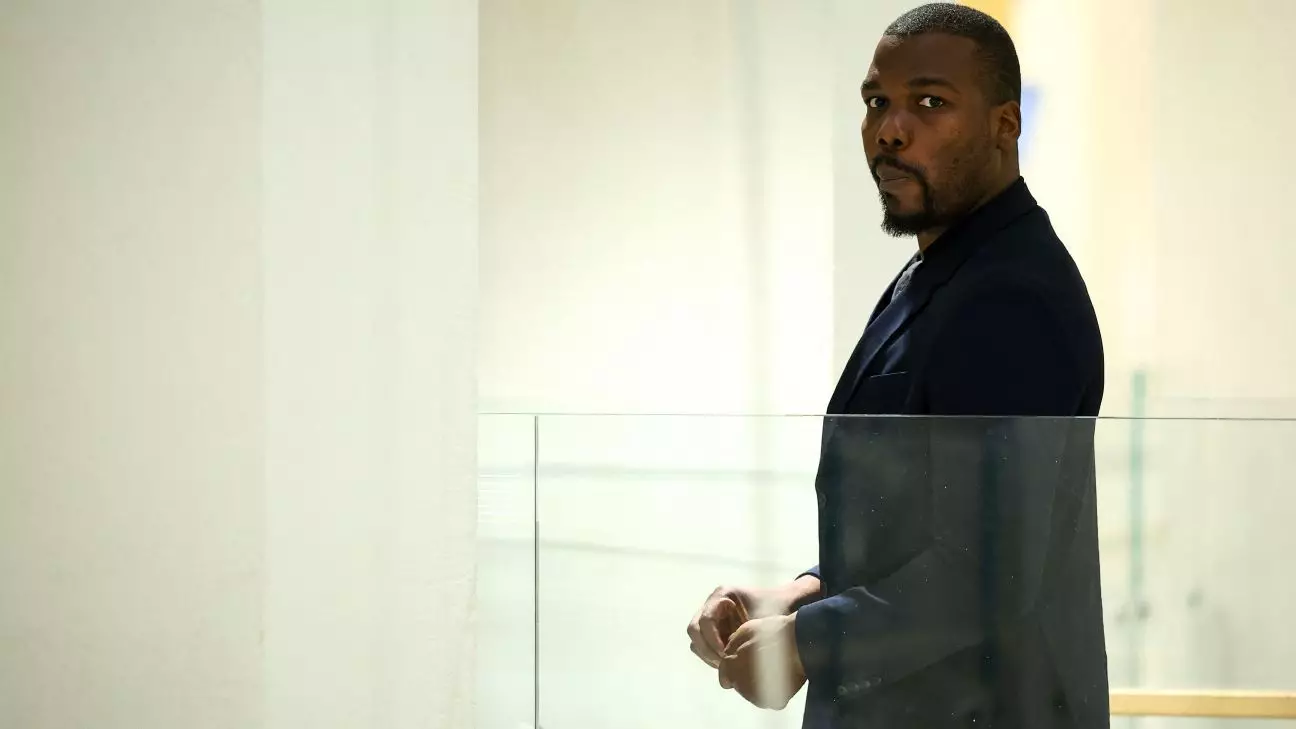The worlds of sports and criminal justice often intersect in unexpected and alarming ways, as evidenced by the recent sentencing of Mathias Pogba, brother of celebrated World Cup champion Paul Pogba. A Parisian court has handed down a sentence of three years in prison—two of which are suspended—aimed at Mathias for his involvement in a heinous scheme of extortion and kidnapping. This case, shrouded in complexity and familial strife, raises questions not only about the nature of brotherhood but also about the pressures faced by those in the limelight.
At the center of the legal drama is Mathias Pogba, who, alongside five accomplices, was charged with attempting to extort €13 million from his brother. Paul was reportedly held at gunpoint by masked men, a scenario that serves as a grim reminder of how criminal intent can implicate even the closest family ties. The charge of criminal conspiracy against Mathias and his associates speaks volumes about the depths of betrayal that can arise in familial relationships, especially under the bright glare of fame and fortune.
The court proceedings not only revealed the extortion plot but also highlighted the emotional and financial toll on Paul Pogba, who reportedly suffered €197,000 in economic losses and €50,000 in moral damages. An unsettling aspect of this case is Mathias’s position as both a brother and an alleged perpetrator. His attempts to undermine the very essence of brotherhood for financial gain paint a picture of a toxic relationship exacerbated by external pressures.
Mathias Pogba’s Sentencing and Appeal
The final ruling imposed by the Paris court was in line with what the prosecution sought, leading to a sense of vindication for many who followed the gripping case. Mathias’s sentence, two years suspended, means he will serve the remainder of his time under house arrest with electronic monitoring. This is a stark reminder of how justice can intersect with personal tragedy, forcing a close relative of an international sports star to reckon with the implications of their choices. Notably, Mathias’s attorney indicated that they would appeal the court’s decision, signaling that this saga may not be fully resolved.
The presence—or absence—of Paul Pogba during this trial underscores the complexities of family loyalty amid scandal. Mathias was tried in his absence, suggesting a possible estrangement or a calculated move to avoid further sensationalism surrounding his brother’s already tumultuous life.
While the legal proceedings against Mathias uncover the grim reality of family dynamics gone awry, they also serve as a backdrop to Paul Pogba’s own dramatic fall from grace. Once celebrated as one of the world’s best midfielders, Pogba has, in recent years, become more synonymous with controversy than with athletic achievement. From his previous record transfer to Manchester United in 2016 to his recent doping ban, every step in Pogba’s career seems to be marred by turmoil and scandal.
Paul’s struggles were compounded recently when Juventus announced a mutual agreement to terminate his contract, even after an appeal led to a reduction of his doping ban. The connection between his professional decline and Mathias’s criminal activities raises broader questions about the pressures that elite athletes face not only on the field but also from those closest to them.
The saga of the Pogba brothers serves as a troubling reminder of how wealth and fame can sometimes bring out the worst in familial bonds. While Mathias Pogba faces the consequences of his actions, Paul is left to grapple with the fallout—both personally and professionally. Their intertwined fates illuminate the fragile nature of trust and loyalty, especially when the stakes are elevated by public scrutiny and personal ambition. As the dust settles on this case, it leaves us pondering the implications of fame, the fragility of family ties, and the often-hidden struggles that athletes endure behind the scenes.


Leave a Reply